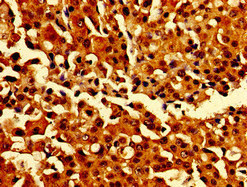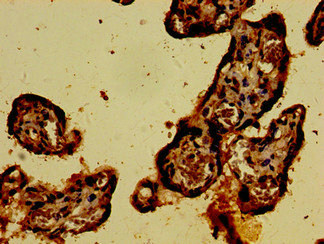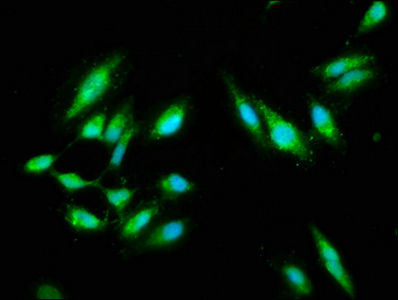Full Product Name
Rabbit anti-Homo sapiens (Human) CARD14 Polyclonal antibody
Alternative Names
Bcl10 interacting MAGUK protein 2 antibody; Bimp 2 antibody; Bimp2 antibody; CAR14_HUMAN antibody; CARD 14 antibody; CARD containing MAGUK 2 protein antibody; CARD containing MAGUK protein 2 antibody; Card maguk protein 2 antibody; CARD-containing MAGUK protein 2 antibody; CARD14 antibody; Carma 2 antibody; Carma2 antibody; Caspase recruitment domain containing protein 14 antibody; Caspase recruitment domain family member 14 antibody; Caspase recruitment domain protein 14 antibody; Caspase recruitment domain-containing protein 14 antibody; PRP antibody; PSORS2 antibody; PSS1 antibody
Immunogen
Recombinant Human Caspase recruitment domain-containing protein 14 protein (249-523AA)
Immunogen Species
Homo sapiens (Human)
Conjugate
Non-conjugated
The CARD14 Antibody (Product code: CSB-PA883622LA01HU) is Non-conjugated. For CARD14 Antibody with conjugates, please check the following table.
Available Conjugates
| Conjugate |
Product Code |
Product Name |
Application |
| HRP |
CSB-PA883622LB01HU |
CARD14 Antibody, HRP conjugated |
ELISA |
| FITC |
CSB-PA883622LC01HU |
CARD14 Antibody, FITC conjugated |
|
| Biotin |
CSB-PA883622LD01HU |
CARD14 Antibody, Biotin conjugated |
ELISA |
Purification Method
>95%, Protein G purified
Concentration
It differs from different batches. Please contact us to confirm it.
Buffer
Preservative: 0.03% Proclin 300
Constituents: 50% Glycerol, 0.01M PBS, pH 7.4
Tested Applications
ELISA, IHC, IF
Recommended Dilution
| Application |
Recommended Dilution |
| IHC |
1:20-1:200 |
| IF |
1:50-1:200 |
Storage
Upon receipt, store at -20°C or -80°C. Avoid repeated freeze.
Lead Time
Basically, we can dispatch the products out in 1-3 working days after receiving your orders. Delivery time maybe differs from different purchasing way or location, please kindly consult your local distributors for specific delivery time.
Usage
For Research Use Only. Not for use in diagnostic or therapeutic procedures.









